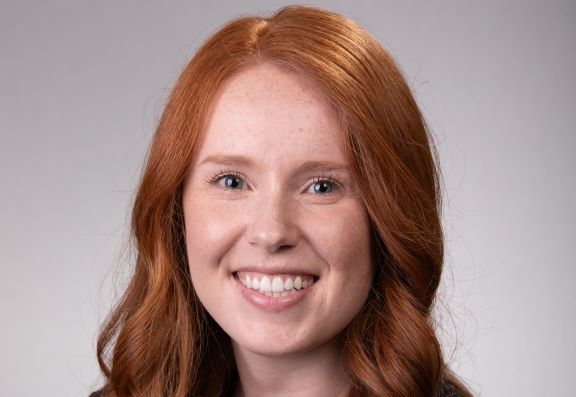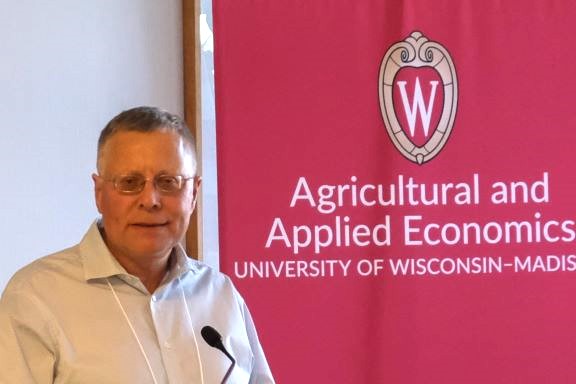Economics for the real world
Deep historical roots.
The Department of Agricultural and Applied Economics at the University of Wisconsin-Madison was the first such specialized department in the world. Growing from its original focus on issues of land, forests and farm management, the department is continually evolving to address the needs of students, the state of Wisconsin, the nation, and the world.
Ready for the future.
With research, teaching, and outreach focused on environmental and resource economics, agricultural economics, international development, and community economic development, our faculty’s work addresses some of the world’s most pressing current problems. As one of the top departments in the country, the future of AAE is brighter than ever.
Recent graduate Mckenzie Boyce wins 2025 George Goldman Award for Broadband Research in Wisconsin
Mckenzie Boyce PhD ’25 has received the 2025 George Goldman Award for Excellence in Regional Economic Development. Boyce earned this recognition for her research on Wisconsin households’ willingness to pay for broadband services.

From classroom to career, MSPO alumni are turning economic insight into real‑world impact.
Built for students who want real‑world impact, the MSPO program equips graduates with analytical and professional skills. 2025 alumni Lincoln Miller and Hunter Downey share how MSPO shaped their careers.

AAE Hosts Fall Scholars and Sponsors Dinner
Support from generous donors is helping AAE students pursue their academic and professional goals this year.

Farmer-led initiatives help reduce surface water pollution in Wisconsin
Profs. Jeff Hadachek and Andrew Stevens showed that an innovative program led by Wisconsin farmers improved the state’s water quality at a fraction of typical costs.

From tax incentives to community livability: Evolving strategies for economic development
Professors Tessa Conroy and Steve Deller, along with PhD student Mckenzie Boyce, are helping communities build economic development policies that strengthen urban and rural quality of life.

AAE welcomes Dr. Paul Mitchell as department chair
From Iowa to Wisconsin, classics to economics, Mitchell has followed anything but a traditional path to take the helm of AAE, but these experiences have prepared him well for this new challenge.












